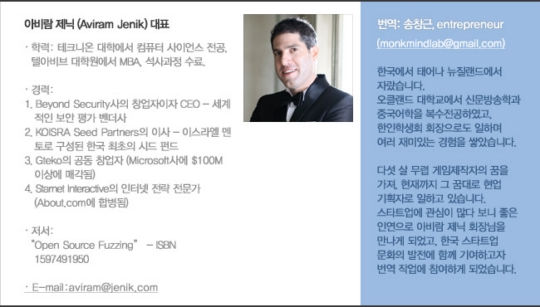누군가 로또에 당첨되는 것과 당신이 당첨되는 것에는 큰 차이가 존재합니다. 전자는 통계적으로 볼 수 있지요. 거의 항상 누군가는 당첨되기 마련입니다. 허나 후자의 경우는 아주 어려운 일입니다. 당첨될 사실을 알고 티켓을 구입하는 일 말이죠.
스타트업 세계에서 가장 어려운 일 하나가 있다면 바로 다른 스타트업이 대박나는 걸 지켜보는 일입니다. 페이스북의 경우, 야후에게 10억 달러라는 놀랄만한 액수에 회사를 팔 수 있엇습니다, 그러나 그들은 야후를 넘어서 더 큰 회사가 되는 길을 선택했지요. 그 당시만해도 페이스북의 성공은 보장된 것이 아니었습니다.
오히려 가능성과는 거리가 멀어보였지요. 수많은 일들이 일어나 페이스북의 성공을 방해했을지어도, 결국 그들은 승리해냈습니다. 단지 이 회사가 성공하는 데 있어 상당 부분은 운에 기인했을 지라도요. 페이스북은 로또당첨 티켓을 거머쥔 겁니다.
그렇다면 로또당첨은 대체 어떻게 계획할 수 있는 건가요? 사실 그런 계획은 세울 수가 없습니다. 물론, 가장 많은 변화는 이 티켓을 구입하는 데서부터 시작되지요. 스타트업을 창업하지 않고서는 대박도 날 수 없습니다. 창업은 로또 티켓을 구입하는 행위와도 같지만, 우선은 그게 전부입니다.
이 시점부터는 사업의 많은 부분이 본인 마음대로 제어되진 않을 것이란 사실을 인지한 채 최선을 다해 승산을 높여야만 합니다. 훌륭한 제품을 만들고, 사용자를 모집하며, 성장에 집중해야 하지요. 허나 스타트업이 대박나는 일은 굉장히 운에 달려있는 일입니다. 최선을 다할 순 있어도, 그 것으로도 여전히 부족함이 있지요.
이 말을 꺼내 창업자들의 사기를 꺾을 생각은 아닙니다. 스타트업과 함께 하는 삶은 스트레스로 가득하고 지옥과 천당을 오가는 일이지요. 그 어떤 일보다도 훨씬 어려운 일이고, 동시에 성공 시 보수가 높은 일이기도 합니다. 이러한 스트레스 속에서, 우리는 보통 다른 스타트업들의 경우를 많이 살펴보게 됩니다.
그들은 어떤 방법으로 앞으로 나아갔는지, 그리고 창업자인 우리도 그 트렌드에 맞춰 따라가야하는 지 등을 말이죠. 그리고 그 와중에 한 스타트업이 크게 성공하는 일이 발생합니다. 어떤 이름 모를 팀이 유명한 VC로부터 큰 액수의 투자를 받았다거나, 유명한 사람을 팀으로 영입했다거나 하는 식으로요. 갑자기 등장한 신제품에 대해 인터넷이 떠들석해지는 모습을 볼 수도 있고, 완전 바보 같다 여긴 제품을 만들던 회사가 수십 억의 가치를 인정받았다는 소식을 들을 수도 있습니다.
스타트업 창업자들은 뉴스에 중독되어있습니다. 앞서 말한 성공 케이스가 항상 뉴스에 떠있기 때문이지요. 이는 당신에게 스스로가 부족하다는 느낌을 줍니다. 가령, 실리콘 밸리에서 가장 공공연히 알려진 비밀 중 하나가 바로 ‘한 스타트업이 성공하려면 대부분 10년 또는 그보다도 긴 시간이 필요하다’는 건데요,
우버나 에어비엔비 같이 3~4년 내로 수십 억의 가치를 지닌 비즈니스로 성장한 `원더 키드`를 외부의 시각으로 바라볼 때, 실은 대부분의 성공한 스타트업들이 이보다 훨씬 긴 시간을 통해 성공한 게 사실임에도 실리콘 밸리 밖의 사람들은 이 사실을 알지 못하는 겁니다. 당신 또한 이러한 예외적인 결과를 본인의 경우와 비교하게 되면서, 본인의 경우가 보통 정상이고, 또 앞으로도 큰 성공을 이뤄낼 수 있기도 함에도 불구하고 스스로가 일을 잘 못하고 있다 생각하게 되는 겁니다.
예외적인 경우란 말 그대로 예외적인 경우입니다. 보통, 성공이란 열심히 일하고 땀 흘리며 시간을 들여 얻을 수 있는 것입니다. 지루하고도 어려운 일이며, 기적이란 존재하지 않습니다. 따라서 로또에 당첨되는 것 마냥 대박을 계획하고 있는 스타트업에게 조언을 드리자면, 차라리 계획을 하지 말라고 말하고 싶습니다. 스타트업을 차린 후에는, 성공을 위해 해야할 일들을 하세요. 다른 이와 자신을 비교하지 마시고, 예외적으로 성공한 스타트업을 일반화하여 믿지 마시길 바랍니다.
Planning to win the lottery
How hard is it for someone to win the lottery? It can`t be too hard. Every week several people do it, right? Well, while having someone winning the lottery isn`t hard, it`s really hard to be the one that buys the winning ticket.
There`s a big difference between just someone winning the lottery and you winning the lottery. The former is a statistical thing ? someone will almost certainly win the lottery. The latter is very hard ? to buy the winning lottery ticket knowing that`s the one.
One of the hardest things about the startup world is watching other startups win the lottery. Facebook could have sold to Yahoo for an amazing sum of one Billion dollars; instead, they decided to continue their own way and become bigger than Yahoo itself. But the success of Facebook at that point wasn`t guaranteed: in fact, it was far from being a sure thing. So many events could have prevented Facebook from winning the startup lottery, and still they won. But in many ways, Facebook`s success owes a lot to chance. They just had the winning lottery ticket.
How can you plan to win the lottery? The fact is, you can`t. Of course, one thing that makes a huge difference is buying the lottery ticket in the first place: if you don`t start your startup, it goes without saying you can`t win. Starting a startup is buying the lottery ticket, but that`s pretty much where things end ? from this point you can (and should) do you best to increase your odds, but understand that a lot of factors are out of your control. You need to build a great product, get users, and focus on growth; but the startup lottery is very much based on chance. You can do your best, and that still won`t be enough.
I`m not bringing up this point to discourage startup founders - on the contrary. Startup life is stressful, with lots of ups and downs. It is a lot harder than most other types of works and the stakes are high. Within this stress, we tend to look a lot at other startups: what tricks are they using to get ahead; what trends are they using and should you be jumping on those trends? And then once in a while, a huge success pops-up. It could be that an unknown team has raised a substantial amount from a well-known VC, or perhaps recruited a top name to their investor team. You may hear the Internet buzzing about a new product coming out of nowhere or a company you think is making a completely stupid product being valuated for Billions.
Startup founders are addicted to news, and these successes are in the news all the time. It can easily give you a feeling of inadequacy; for example, one of the well known secrets in Silicon Valley is that most startups succeed after ten or years or more; outsiders look at Uber, Airbnb and other “wonder kids” that have become multi-billion businesses in three or four years ? but the majority of successful startups take a lot longer to take off, except not many people outside Silicon Valley know this fact. If you were comparing yourself to these exceptions, you`d think you were doing poorly, when in fact your case is the common one, and you could certainly be a big success.
The exceptional cases are exactly that ? exceptional. The regular success is earned by hard work, sweat, and time. It is tedious and difficult, and it does not involve a miracle.
So my advice for startups planning to win the lottery is: Don`t. Start your startup, and do what you need to do to succeed. Don`t measure yourself to others and certainly don`t believe the exceptional startups are the norm.

관련뉴스














